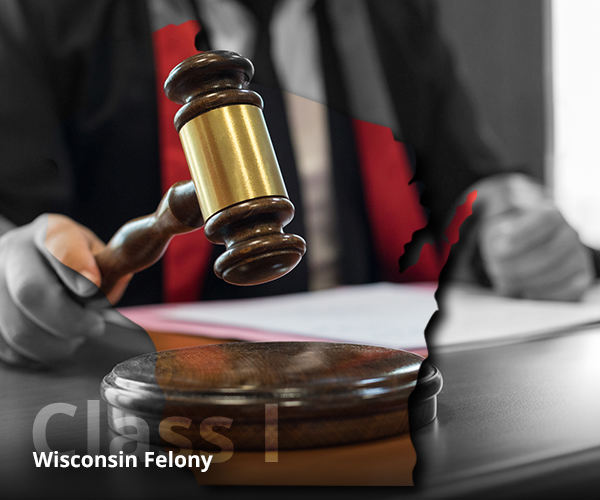A Class I felony in Wisconsin is the lowest-level felony charge, but it still carries severe consequences. A conviction can result in up to 3.5 years in state prison and fines of up to $10,000 (Wis. Stat. § 939.50). Crimes in this category include aggravated battery, drug possession with intent to sell, and property crimes. Even though Class I felonies have the shortest prison sentences, a conviction will permanently stay on your record and can limit employment, housing, and civil rights. If you are facing a Class I felony charge, Grieve Law is prepared to fight for you and protect your future.
Types of Class I Felonies
Class I felonies in Wisconsin cover a range of offenses, many of which involve property damage, drug possession, or repeat offenses. Grieve Law has defended clients facing charges including:
- Aggravated battery causing substantial bodily harm
- Threatening or Stalking
- Possession of child pornography (defendant under 18)
- Theft of property valued between $2,500 and $5,000
- Destruction of property worth more than $2,500 or targeting protected property (churches, revenue offices, etc.)
- Arson of property (excluding buildings)
- Keeping or maintaining a drug house
- Possession of Schedule V drugs with intent to sell
- Possession of up to 200 grams of marijuana with intent to sell
- Second or subsequent possession of cocaine
- Second or subsequent possession of THC
Class I felony convictions can have long-term personal and legal consequences. Prosecutors will push for maximum penalties, but Grieve Law knows how to challenge evidence, expose weaknesses in the case, and fight for reduced or dismissed charges. If you’ve been accused of a Class I felony in Wisconsin, you are only guilty if you are convicted™. Call Grieve Law today for a free consultation.

Defenses for a Class I Felony in Wisconsin
Being charged with a Class I felony does not mean you will be convicted. Grieve Law constructs targeted defense strategies to weaken the prosecution’s case at every phase. Our defense strategies include:
- Challenging Probable Cause: At the preliminary hearing, prosecutors must prove probable cause to proceed with the case. If law enforcement lacked proper justification for your arrest, the charges could be dismissed.
- Examining Constitutional Violations: If police conducted an unlawful search, seizure, or interrogation, evidence may be thrown out. We will analyze whether your rights were violated at the time of arrest or during questioning.
- Motion Hearings: Filing pre-trial motions to dismiss charges or suppress unlawfully obtained evidence can significantly weaken the prosecution’s case. If errors occurred during your initial court appearance, we will use them to your advantage.
- Challenging Drug Possession Cases: For drug-related Class I felonies, we investigate whether the prosecution has sufficient evidence to prove intent, which is often difficult to establish. If intent cannot be proven, charges may be reduced to simple possession.
- Reducing Charges to Misdemeanors: Many Class I felonies involve conduct that could be charged as a misdemeanor instead of a felony. Reducing the charge can prevent lifelong consequences such as felony record restrictions, loss of civil rights, and employment barriers.
At Grieve Law, we analyze every aspect of your case to guarantee no legal violation goes unchallenged.
References: Classification of felonies: Wisconsin Statute § 939.50 (2025)


 Keeping Wisconsin Residents Free
Keeping Wisconsin Residents Free